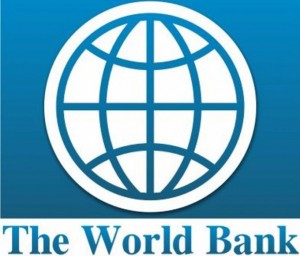Ghana’s economic growth strong over past decade – World Bank
 Ghana’s economic growth has been strong over the past decade, with annual GDP per capita growth at an averagely 4.4 per cent between 2006 and 2017.
Ghana’s economic growth has been strong over the past decade, with annual GDP per capita growth at an averagely 4.4 per cent between 2006 and 2017.
Growth however has been heavily concentrated in the natural resources and commodities sectors, which has had an impact on job creation.
This was said at the presentation of a World Bank report on Tuesday in Accra dubbed, “Realizing Ghana’s Potential for Economic Diversification to Create More, Betters jobs.”
The report which was co-presented by Michael Geiger and Steve Loris Gui-Diby, Senior Economist and Economist of the World Bank respectively, said Ghana’s productivity levels were relatively high in the African context, although they lagged behind most other lower-middle and middle income countries.
It said capital accumulation had been a driving force for the country’s economic growth over the past decade, adding that increasing the capital stock was good news for an economy that was trying to address its infrastructure gap, and had ambitious goals to achieve economically.
The report said while capital accumulation in Ghana was realized through strong increases in investments concentrated in a few natural resource sectors, “investments need to benefit more sectors in the economy in order to broaden Ghana’s economic endowment.”
It said for the country to create a more diversified economy, there was the need to take advantage of short term gains in promising sectors for growth such as agribusiness, chemicals, textiles and processed resources through upgrading of existing production and product differentiation.
There is also the need for interventions that would help lay the foundation for economic activity to flourish, such as human capital and physical infrastructure development, bettering the business enabling environment by removing constraints to productivity and addressing structural issues to attract more foreign, direct and domestic investments, the report said.
It said a more diverse economy could help reduce economic volatility from commodity cycles, and offer new opportunities for more people to benefit from strong economic growth.
Pierre Laporte, World Bank Country Director for Ghana, said a more diverse economy that provided a shield to economic volatility from commodity cycles, and allowed more people to benefit from economic growth, was an attainable target for Ghana.
He said such an economy would trigger private investment, adding that the government could put in place conditions to make this happen.
“We hope this report will provide the basis for ongoing policy debate and with this, contribute to economic development in Ghana,” Mr. Laporte said.
Source: GNA
